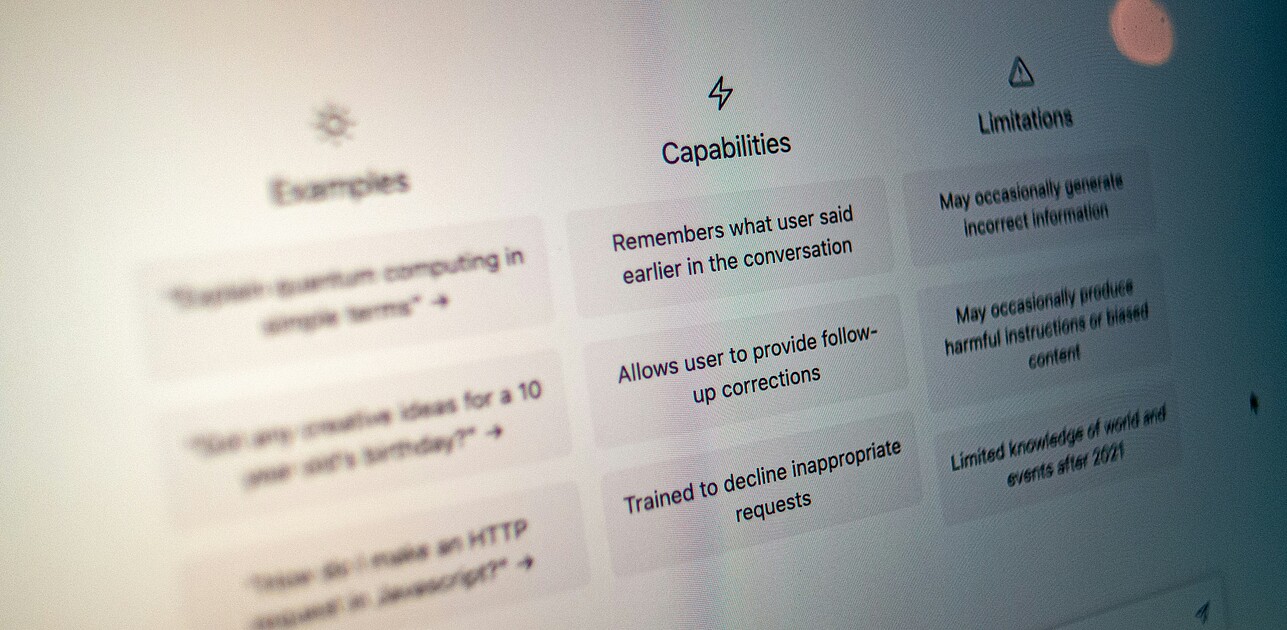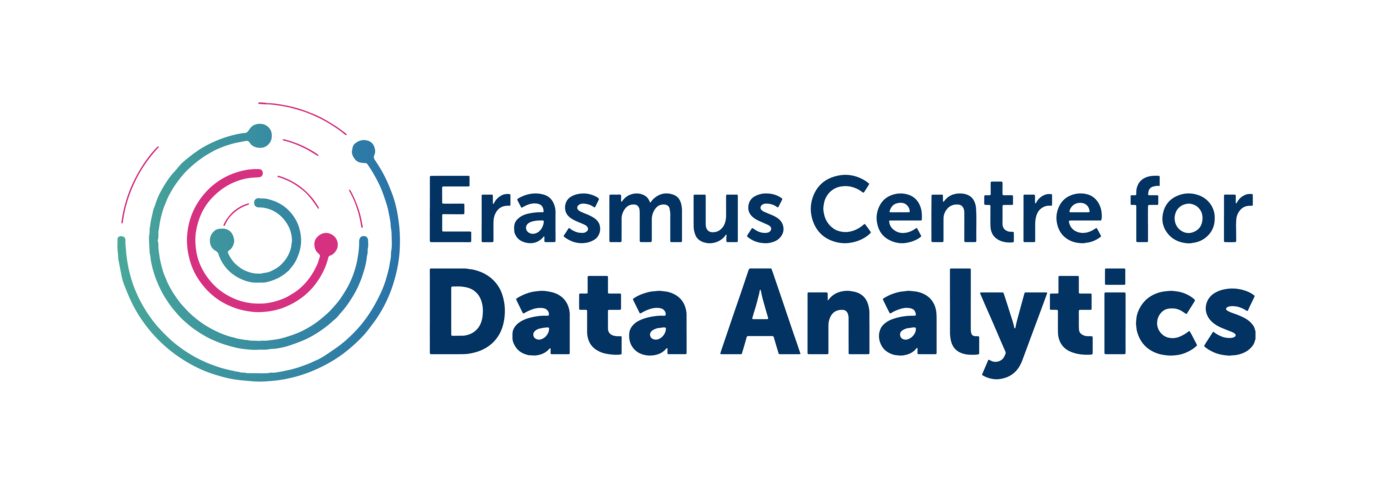

Article: Monday, 1 July 2024
There’s a mix of opinions about using generative artificial intelligence (GenAI) for work. Is it acceptable to use a bit of smart help or not? It appears that people often think that they use it for inspiration (which is ok), but that other people probably rely on it to do all the work (which is not considered ok) – and this bias has implications for marketing, policymaking and education. The evidence comes from research done by RSM associate professors Mirjam Tuk and Anne Kathrin Klesse; and PhD candidate Begum Celiktutan in their paper Acceptability Lies in the Eye of the Beholder: Self-Other Biases in GenAI Collaborations, which will be published in a forthcoming issue of the International Journal of Research in Marketing.
“The answer to the question of whether GenAI usage is acceptable is not clear-cut. Instead, it depends on whether we are making this decision for ourselves or for others. Interestingly, it seems acceptable to use GenAI for ourselves but less so for others,” says Dr Mirjam Tuk. “This is because people tend to overestimate their own contribution to output like application letters or student assignments, when they co-create them with GenAI because they believe that they used GenAI only for inspiration rather than for outsourcing the work.
Since the launch of ChatGPT in 2022, and other dialogue-creating platforms that followed it, the acceptability of using GenAI has been heavily debated, with some people being highly in favor and others highly against it. The work by Celiktutan and colleagues directly speaks to this debate by documenting a systematic difference between the way in which people evaluate their own work and the way in which they evaluate other people’s work with GenAI. The results suggest that creators (e.g., students) assign more credits to themselves when co-creating work (e.g., a student assignment) with GenAI than the credit that evaluators (e.g., teachers or other students) assign to them for the work. In fact, people seem to employ double standards when judging their own co-creations with GenAI and those of others, being lenient on themselves but harsher on others.
The researchers looked at almost 5,500 participants in nine studies that covered a variety of tasks ranging from job applications and student assignments to brainstorming and creative tasks. Half of the participants were asked to create an output with ChatGPT or imagined creating something using ChatGPT whereas the other half of the participants thought about someone else creating the same thing, potentially with the help of ChatGPT.
Afterwards, all participants estimated the extent to which ChatGPT had contributed to the output (x% of 100%). In some studies, the researchers also measured how acceptable participants thought it was to use GenAI for that task. They also used a ChatGPT detector to measure the participants’ accuracy in assessing contributions to output.
When evaluating their own output, participants thought they contributed around 54 per cent to the output, and ChatGPT contributed 46 per cent.
But when evaluating others’ output, participants thought the other person contributed only about 38 per cent while ChatGPT contributed 62 per cent. These differences in inferred contribution stem from differences in inferred usage behavior:
People perceive themselves as using GenAI to get inspiration, but think that other people use it to outsource the task. These differences in inferred usage behavior then prompt people to think that it is totally acceptable for themselves to use GenAI, but not so much for others.
Uncovering this bias has the following implications for marketing and sales professionals, for policymaking, and for education:
Transparency in the use of GenAI is crucial to prevent clients from questioning the value of marketing professionals, as these may be perceived as overly reliant on GenAI.
Policymakers need to consider human evaluators' biases in addition to the capabilities and data of GenAI.
Awareness of the self-other bias is essential for both educators and students. Clear guidelines for the use of GenAI should reflect the perspectives of creators and evaluators.
Using GenAI is common in marketing and sales; its appeal is increased efficiency in marketing tasks. But the downside is that it could call into question whether or not there’s added value from professions like marketing research agencies, influencer marketers, and content marketers. Clients may assume that these functions are using GenAI to assist or even completely outsource their tasks, thus, questioning the value of employing such agencies.
To prevent such inferences, marketing professionals may want to be transparent about the value they bring to the industry as this can highlight their competitive advantage above and beyond GenAI tools.
For policy makers, it is not enough to focus only on the outcomes that GenAI can produce and its underlying data and algorithms. It is also important to consider the humans evaluating the outcome. The research team suggests: “Policy makers should be aware that their stance in the debate may differ depending on whether they are creators or evaluators,”
The findings also offer valuable insights for education: “Both educators and students need to be aware of the bias we documented, and understand that it influences people’s perceptions of acceptability – that outsourcing tasks to ChatGPT is perceived as unacceptable but using it for inspiration is more acceptable.”
Formulating clear guidelines for using ChatGPT should take into account the perspectives of creators and evaluators, as well different types of behaviour in using it.
“Overall, our results stress the importance of transparency for everyone involved. Transparency leaves less room for interpretation and also highlights the added value of a human creator,” commented Dr Tuk.



This article was made within the Psychology of AI lab. It examines the human aspects of AI adoption and interpretation and is part of the Erasmus Centre for Data Analytics (ECDA). This interdisciplinary group studies consumer acceptance of AI, employee beliefs about technological replacement, and analysts' interpretations of data.

You can read the full paper in International Journal of Research in Marketing. It includes a table offering concrete examples and suggestions for educators, students, marketing professionals, tech developers, policy makers and regulators.


Science Communication and Media Officer
Rotterdam School of Management, Erasmus University (RSM) is one of Europe’s top-ranked business schools. RSM provides ground-breaking research and education furthering excellence in all aspects of management and is based in the international port city of Rotterdam – a vital nexus of business, logistics and trade. RSM’s primary focus is on developing business leaders with international careers who can become a force for positive change by carrying their innovative mindset into a sustainable future. Our first-class range of bachelor, master, MBA, PhD and executive programmes encourage them to become to become critical, creative, caring and collaborative thinkers and doers.
